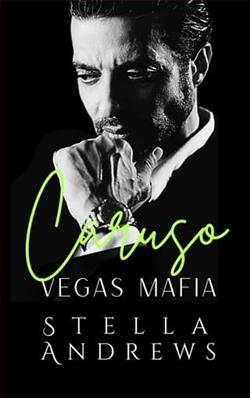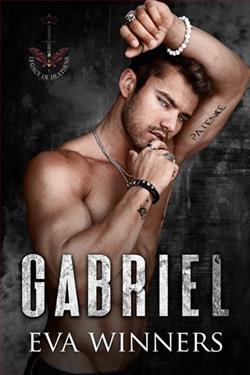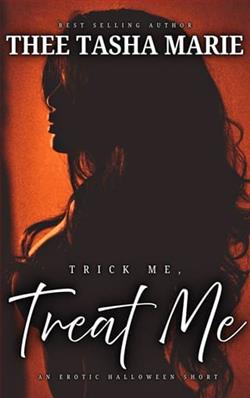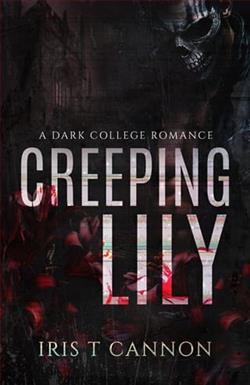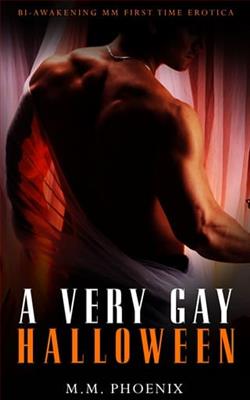Page 76 of When I Picture You
Ackerlund’s head bobbed. “I like that little riff on the ‘Star Sign’ bridge. What was the original?”
“You were watching the stars, but I was watching you.” Lola’s cheeks pinked as her eyes darted to Renee’s.
“Then we go,” Ackerlund said, humming a little, “Why did I wait so long to feel your arms around me? How long have we been in the middle of our love story?Let’s develop that more. You’ve been waiting for him, you’ve got him, what’s next?”
The male pronouns were a fishhook in Renee’s guts. Renee would have thought she was incapable of being shocked by heteronormativity, but it was outrageous that Ackerlund could be so oblivious to what was right in front of him. Could Ackerlund really believe that Lola had pined over Nash like this?
Lola wasn’t going to correct the pronoun Ackerlund had used, Renee knew that. There was no reason to announce that the song was actually about a woman right now. Even if that woman was standing right there.
But she couldn’t stop herself from hoping.
A crease appeared between Lola’s brows. She rubbed her palm against her forehead, scrubbing it away. “What about,This is so much better than my fantasy?”
22
Renee Zoomed with Dragan in early November in her office in Lola’s house. Technically it was a guest room that Cassidy—Lola had never attempted to conceal their relationship from her assistant—had suggested designating as Renee’s workspace.
“Before we discuss the material you sent, you received the invitation for the reception, yes?” Dragan asked. “We have no RSVP from you and it’s less than two weeks away.”
The New York Institute of Film’s Fall Reception was an orgy of networking and fundraising where alumni and patrons of the arts got to meet the brightest lights of NYIF’s programs. If you were one of those stars, you could make career-defining connections. If you weren’t, you were still expected to attend.
“I don’t know if I can make it. We’re shooting in L.A.,” Renee said. Renee didn’t mention that by a stroke of bad luck, Lola was scheduled to be in New York for a gala to combat childhood hunger that same week, with Renee in tow.
“Make an effort, Renee. I want to see you there,” Dragan said.
Renee sat up straighter. “You do?”
“One of our third years, directing a major feature? Friends of the institute will be very impressed. Now, let’s discuss your work.”
Renee’s stomach lurched as Dragan flipped through his notes. The two-minute clip she sent him was meant to set the tone for thebroader film. She’d worked hard on it, which meant that she was simultaneously fiercely proud of it and terrified that it was in fact total shit.
Set to a voice-over of Lola speaking about making music, a short montage played:
Lola taking a deep breath before going onstage at Corkscrew, then a wide shot of the massive crowd.
Lola as a little girl, singing in the Grigorians’ living room, then as a teenager onYou’re Next!, followed by the clip of Lola with her high school journals.
Lola smiling and posing on theFit to Livered carpet, then alone, working a song out on her guitar with her glasses on and her face tensed in concentration.
Renee had tried to juxtapose Lola Gray, high-gloss America’s Sweetheart, with the Lo she knew, who was hardworking and earnest and talented beyond belief. The contrast was meant to emphasize the tension between the public and private, the persona and the person behind it.
“Aesthetically, it’s strong. Your footage has a lovely quality,” Dragan said. Renee’s heart fluttered at the positive feedback. “However, what I’m seeing here is a pretty girl in pretty dresses, singing pretty songs.”
Her heart crashed back down to earth.
“But she’s not just a pretty girl,” Renee objected. “That’s what I’m trying to say. The public sees this polished image, but behind it there’s a woman working her ass off.”
Dragan made a face as if she’d served him wine that had gone sour. “That is true for many famous people. Festivals now are overrun with celebrities making these films about themselves.”
“Lola’s different. She’s more of a songwriter than a performer.” It didn’t come out the way Renee had hoped. She sounded like a fangirl, not a director.
“Documentary filmmakers tell a story to serve a purpose. Where purpose and story meet is where our magic happens. Without purpose, the story is meaningless. It leaves no trace on the viewer. Without story, the purpose is an academic exercise, and the film becomes tedious.”
Renee nodded. Dragan had written an entire book on this point, which she had read so many times she could recite sections from memory.
“You’re saying that your purpose is to demonstrate that your subject is different than people think because she works hard.”
“That was a little reductive. I meant—”











